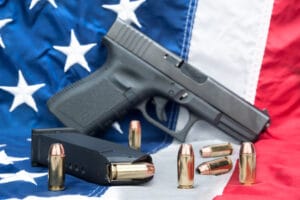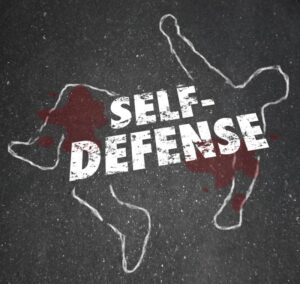It is generally common knowledge that a person who has been convicted of a felony, even if remote in time, is no longer permitted to possession (purchase, possess, handle), a firearm.1 Possession has two (2) possible variables: actual possession, and constructive possession.
Active or actual possession occurs when a person is physically in control of a firearm, such as when it is being held by him or stuck in the waistband. Constructive possession is when a person is within the vicinity of a firearm which they could obtain active possession of in short order. For example, a felon is visiting a friend’s house, and the friend has an unlocked loaded shot gun behind his bedroom door; in theory, that felon has constructive possession if he is in the home and anywhere in the vicinity of the unsecured weapon, although the felon would have to know the firearm was there.
A recent Federal 7th Circuit Court of Appeals case addressed the question of what is a “firearm” for purposes of prosecuting a felon for being in possession of a firearm? In United States of America v. Dotson2, defendant, a convicted felon, used a firearm that was so damaged and corroded that it was inoperable, but he used it during the commission of a crime.
The defendant presented the argument that because the firearm was so significantly damaged, had missing and broken parts, and had extensive corrosion, such that an expert would only be able to make it operable – after considerable hours of extensive repair – that the firearm was no longer a firearm under the definition; and thus, he was not in possession of a firearm. The state essentially proposed the argument that once a firearm is always a firearm for purposes of the federal (and several states) statute.
The 7th Circuit Court of Appeals took a middle ground approach, finding that either argument or position was extreme. The 7th Circuit considered the dividing line as whether the object had been altered, or the design had been altered, to determine whether the once firearm is still a firearm for purposes of the statute. This is a crucial case in firearms’ law.
In this case, defendant’s firearm was altered due to dilapidated conditions, such that it was inoperable, and thus, the 7th Circuit considered that the object was altered. However, the design, meaning what the object was designed to do (shoot), was not altered. Thus, the firearm used by the defendant, while unable to shoot a projectile, but was nonetheless a firearm under the statute. Thus, careful and strict compliance with the law is critical.
We hope that this blog post has been helpful in understanding what is considered a firearm for purposes of prosecution under the felon in possession statute. Dixon & Moseley, P.C. practices throughout the state of Indiana. This blog post was written by attorney, Lori Schmeltzer.






